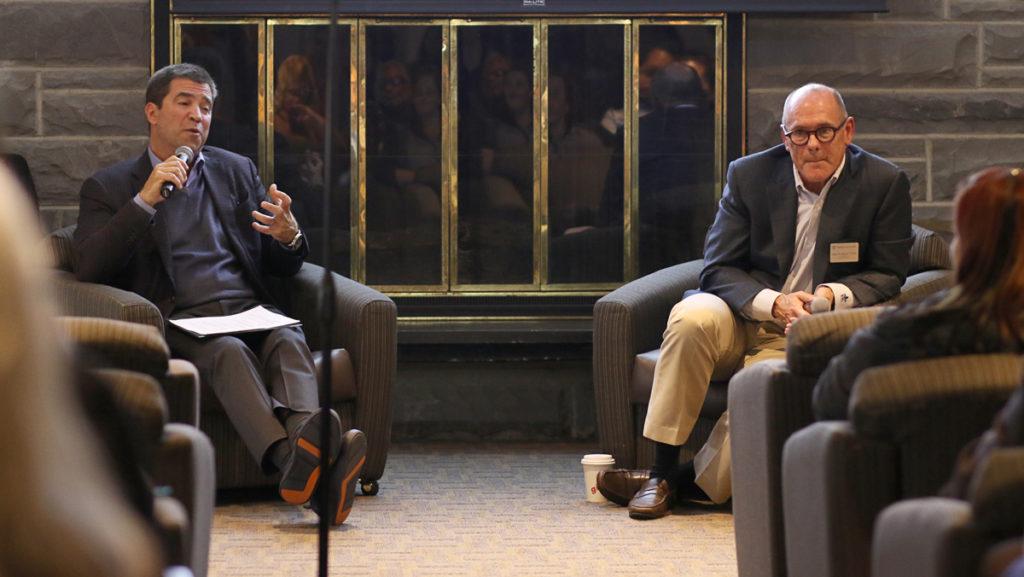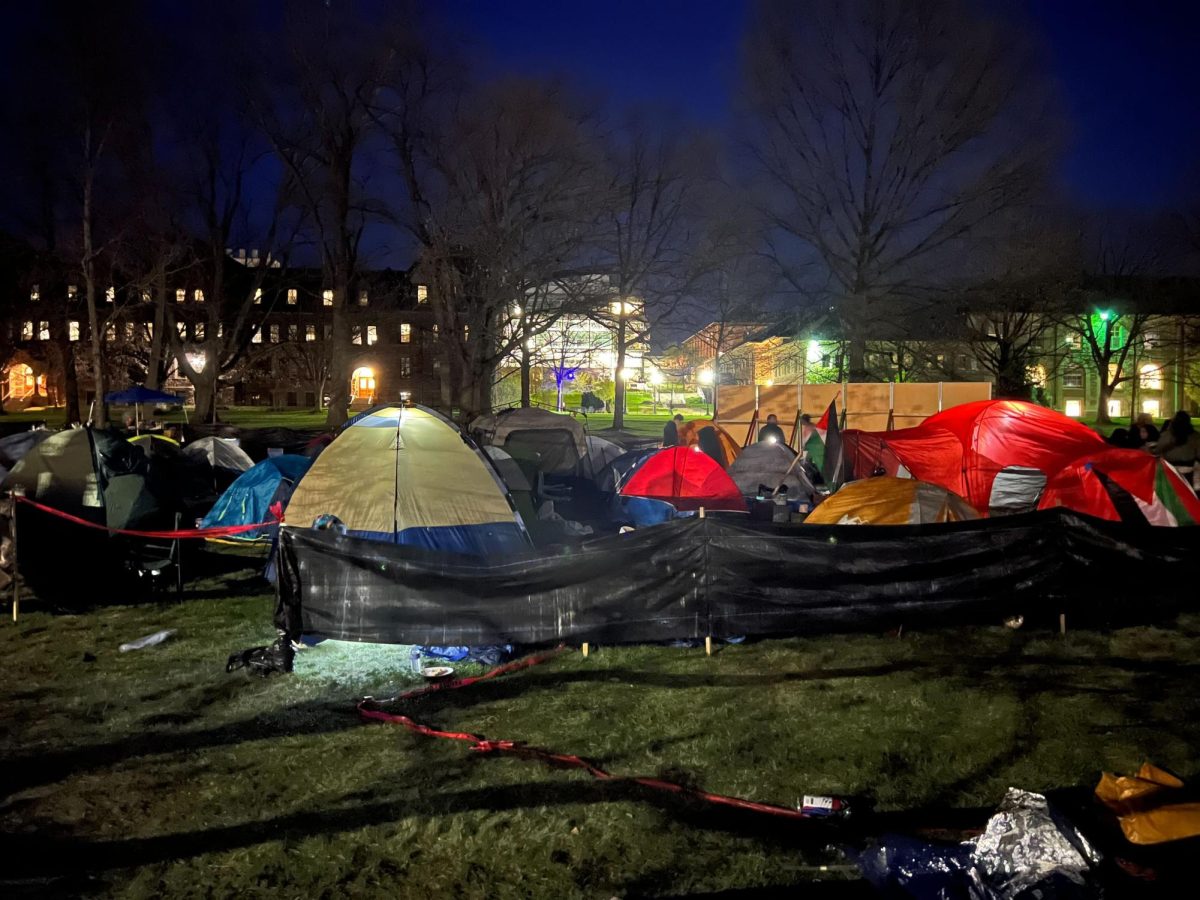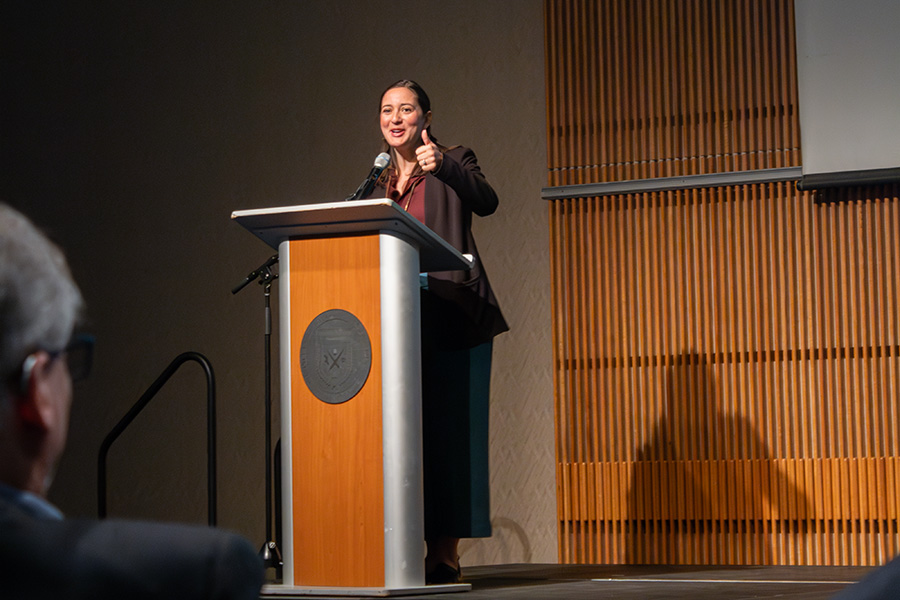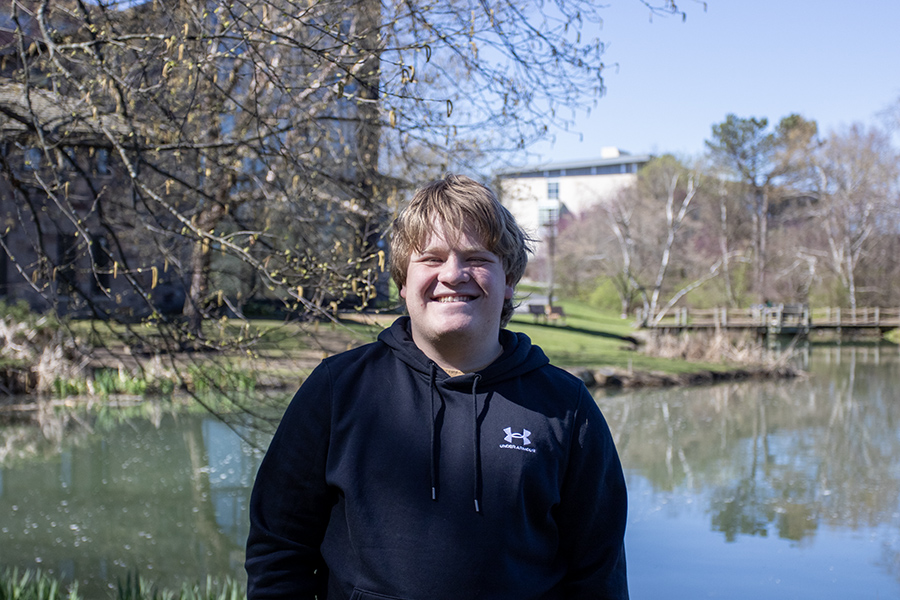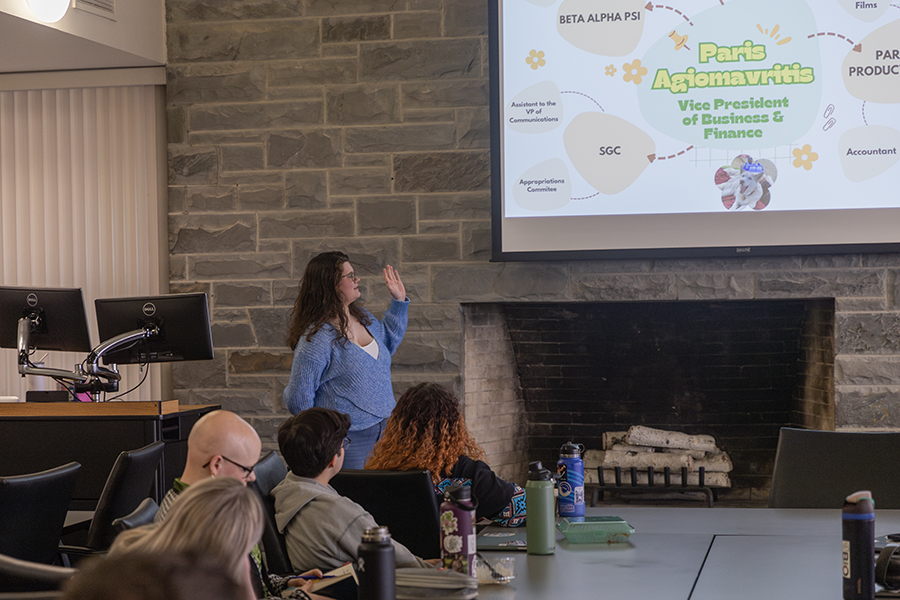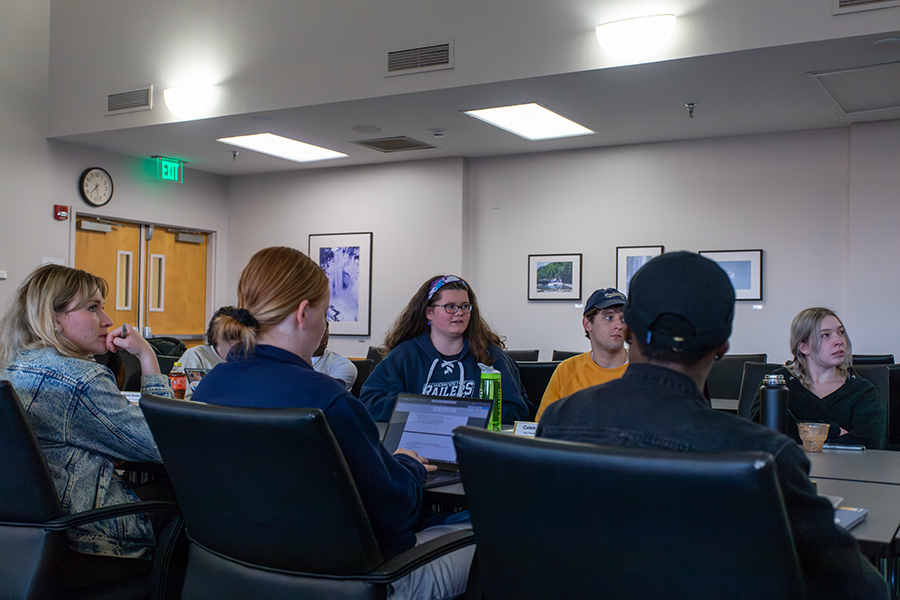The Ithaca College Board of Trustees hosted a virtual discussion Oct. 25 on Zoom with the campus community where attendees raised questions and concerns about enrollment, financial sustainability, student mental health and the search for the college’s next president.
The Ithaca College Board of Trustees held its Fall 2021 meeting in-person from Oct. 20 to Oct. 22. The open conversation allowed a chance for faculty, staff and students to voice questions and concerns to David Lissy ’87, chair of the board of trustees, and Jim Nolan ’77, vice chair of the board of trustees. A total of 112 people attended the Zoom discussion. Before the open conversation, Lissy also specifically addressed mental health concerns on campus.
“On our campus we have challenges that need to be dealt with and we have opportunities to continue to bring important services to students who need them,” Lissy said.
Karin Wikoff, interim college librarian in the Ithaca College Library, said she is pleased about the focus on student health but is worried about the mental health of faculty. She also asked if there is a focus on the mental wellbeing of the college’s employees, specifically after the faculty cuts that began in Spring 2021. The Academic Program Prioritization (APP) process has resulted in 116 full-time equivalent faculty positions being cut, as well as 26 major, department and program eliminations. The college is experiencing understaffing throughout departments and offices because of the national labor shortage.
“As we are following the Ithaca Forever plan and reducing our overall size, those who are left are left with a good deal more weight, more stress and more work; often overwork, at this point, as we have struggled to adjust to being a smaller size,” Wikoff said.
Fatima Hajjat, assistant professor in the Department of Marketing, expressed similar concerns.
“If the people are not up to it because they are so stressed out then the plans don’t go forward as well as you wish so I want to make sure it is a known factor in bringing forward the plans,” she said.
Lissy responded by acknowledging the factors of the strategic plan, the COVID-19 pandemic and additional stressors affecting employee mental health. He said it is a problem for many colleges and that the board did talk about what it could do for employees during the board meeting.
“I don’t have specifics because that is not our role, but I would encourage you to continue to speak with the administration about these things, because I can tell you they were pretty open about it with us,” Lissy said.
Hajjat said there are rumors circulating around campus that the presidential search is just a process of showing the campus community there is a search happening, but that the ultimate goal is to hire Interim President La Jerne Cornish as the college’s 10th president. Hajjat asked the board to confirm this is not the process and that the search is truly looking for the best candidate.
Lissy said the college would entertain both internal and external applications for the position of the next president.
“This search is one hundred percent to find the best next president for Ithaca College; there needs nothing else to be said about it,” Lissy said.
Hajjat also asked the board to address an additional faculty concern about communication.
“Faculty Council has asked our Executive Committee multiple times to invite you to speak with us and have an open conversation, and everytime they told us the request was declined,” Hajjat said.
Lissy did not address that the requests were declined but said the board is committed to having conversations with all of the college’s councils.
“I have had a number of times where I have been in front of the Faculty Council,” Lissy said. “It may have just been the executive committee, and if it was, then so be it, but I have tried to have communication with all councils, and I am open.”
Patrice Pastore, professor in the Department of Music Performance, said many positions in the School of Music are currently missing or interim. She also said the faculty and the music education program bring students to the college, and that they are being negatively impacted by the decrease in resources.
“When you talk about the professional schools, one of my questions is how can we remain the professional school that we have been when we don’t have the faculty to take care of the positions we need,” Pastore said. “I feel pretty lost in terms of the missing positions, missing faculty, programs really impacted and also a sense that outsiders don’t know what we do. … How do we keep going with so many reduced resources?”
Lissy said he does not have all the answers because the role of the board does not include specifics about staffing. He said the board is sensitive to the fact that there are a lot of interim faculty and staff on campus, currently. He said it is difficult for the board to hire deans when it does not have clarity of presidential leadership, and that the board is hoping for the dean hiring process to begin as soon as possible.
The faculty cuts and the impact of that on departments are an ongoing concern for the campus community. Hajjat said she sees these negative effects in the School of Business as well.
“I am seeing a lot of faculty in the business school leave because of some of the conditions that have changed,” she said. “We are being starved; we aren’t being given the resources that we need to advance and to give our students the best we can. Are there any plans in the future to recruit talent and to make sure that we are well equipped with our wonderful staff who make our jobs possible, and provide the ability to recruit students and give them the best value education?”
David Gondek, associate professor in the Department of Biology, asked if the board has started discussing how the new president will be involved in improving financial stability. Lissy said the board will continue to look for other sources of revenue outside of tuition, room and board, but that the reality is even if the college comes up with alternatives, it is unlikely they will be sizable enough to make up the difference in enrollment. The current focus is on growing incoming class enrollment.
Freshman enrollment increased from Fall 2020 to Fall 2021, however, it did not rise to previous years numbers of enrolled freshmen. The college has also set a goal to increase retention rate among students to 87% in the next two years and to 90% by 2026.
Ellen Staurowsky, professor in the Department of Media Arts, Sciences and Studies, asked if the board viewed the college as a selective institution given the decreasing enrollment. Lissy said the issue is not a lack of applications, it is yielding more students to the college. He said the college needs to find students who have the college as their first or second choice and match it with the right financial package that will make the college a competitive option in terms of financial aid.
Staurowsky also added to the previously mentioned concerns about general cuts to faculty and programs.
“I think that it would be worth our while to really think about how these cuts are impacting us, as in terms of our distinctiveness [and] in terms of our uniqueness within the market,” Stauroswky said. “I would just ask if maybe we could be looking at that as well, not just how we’re doing things the same way that other schools are doing it, but also look at the toll that it is taking to the heart of the institution.”
Over the course of the open discussion, Lissy said several times that the board’s role is more big-picture, leaving some questions unanswered.
“I get the fact that there is a lot in that change process that’s really challenging and hard and I’m not trying to minimize it, but ultimately what we’re trying to do is get to a place where we can invest in our future with confidence,” Lissy said.


